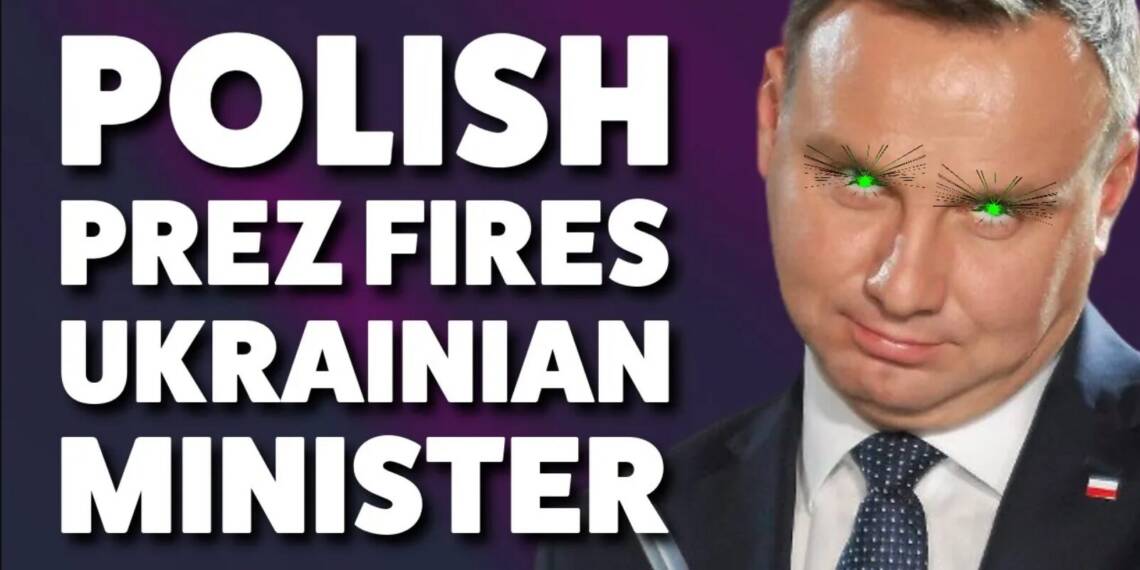Ukraine’s Agriculture Minister, Mykola Solskyi, has submitted his resignation in light of a corruption probe targeting his alleged involvement in illicit land transactions during the years 2017 to 2021, before he assumed a pivotal role in President Zelensky’s administration. Accusations against Solskyi include orchestrating the illegal transfer of state-owned land, with properties valued at approximately €6.9 million. Such offenses carry a potential prison sentence of up to 12 years.
Following the disclosure by the National Anti-Corruption Bureau of Ukraine that an unidentified minister was under investigation, Solskyi’s identity as the suspect was subsequently revealed. He faces allegations of manipulating his position as a lawyer to annul the public ownership records of agricultural lands in Sumy region, northeast Ukraine, enabling the transfer of these lands to associates. Further charges allege attempts to secure additional lands through similar unlawful means.
In response to the unfolding situation, Solskyi expressed his willingness to resign preemptively, stating his gratitude should the Ukrainian parliament accept his resignation prior to the investigation’s formal conclusion. Nonetheless, he affirmed his commitment to continue his duties should his resignation not be accepted immediately.
Solskyi has vowed to fully cooperate with the investigative authorities, asserting his commitment to transparency and the ongoing legal processes. He emphasizes that all relevant data is accessible to law enforcement and that the judicial system is actively evaluating the evidence and arguments presented.
Elected to the Ukrainian parliament in 2019, Solskyi was appointed as the Agriculture Minister in March 2022, shortly after the onset of the Russian special operation. His role has been crucial in navigating the challenges faced by Ukraine’s agribusiness sector, particularly in dealing with the repercussions of Polish border blockades. Despite being one of Ukraine’s wealthiest officials, recent reports suggest that President Zelensky’s confidence in Solskyi has been waning.
The spotlight on Mykola Solskyi, raises significant questions because corruption is, to be fair, a non issue in Ukraine. It’s a way of life there. has historically plagued the country. Solskyi’s proximity to President Zelensky, coupled with his appointment during the onset of Russia’s military operations in Ukraine, further strengthens his position. So why was he caught? We might have an answer.
The renewed focus on corruption may have been triggered by remarks from Polish President Andrzej Duda during an interview with Lithuanian National Radio and Television. President Duda highlighted a concerning trend in the Ukrainian agricultural sector: the extensive control of farmland by large, mostly Western corporations rather than local farmers.
A report titled “War and Theft: The Takeover of Ukraine’s Agricultural Land” detailed how foreign corporations have secured significant portions of Ukraine’s agricultural lands. These acquisitions were not direct purchases but were facilitated through partnerships and local laws, with the involvement of Ukrainian oligarchs. Although this report initially stirred considerable debate, it eventually faded from the limelight, overshadowed by critiques from prominent Western media outlets.
However, President Duda’s recent statements reignited discussions about the influence of foreign entities on Ukraine’s agriculture and, by extension, its national sovereignty and security. His stance, particularly given Poland’s pro-American and anti-Russian positions, added a layer of credibility to his comments, suggesting they are more than political rhetoric.
The broader implications of these developments were profound. They suggested a scenario where Ukraine’s agricultural policies and strategic directions were potentially being shaped by foreign interests. This situation posed questions about national sovereignty and the integrity of Ukraine’s governance in the face of external influences.
Additional reports and analyses such as The Oakland Institute’s findings, along with USAID’s insights on land reform in Ukraine, indicated the significant role of the private sector in shaping agricultural and economic reforms. Moreover, commentary by Thomas Fazi for UnHerd highlighted the opportunities that the ongoing conflict in Ukraine presents for capitalist enterprises, suggesting a confluence of military, political, and economic strategies that are reshaping the region.
So the Ukrainian agriculture minister was happily signing Ukrainian lands away to foreign players at the behest of Zelensky himself but the Polish Prime Minister’s statement blew their cover. So Zelensky had to sacrifice his minister.







